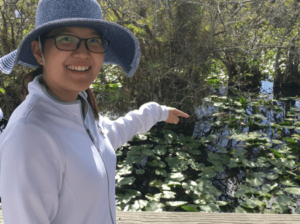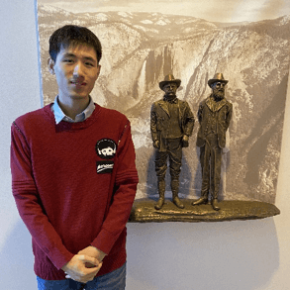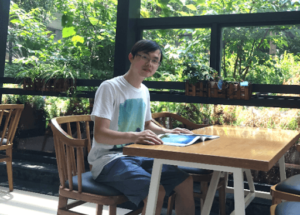Faculty Profile
Lian Yu
Credentials: PhD
Position title: Professor Pharmaceutical Sciences and Chemistry
Email:
lian.yu
Professional Interests:
We study the solid materials of organic molecules important for pharmaceutical formulations and electronic devices. These materials contain complex molecules assembled by many types of intermolecular forces. They exhibit physical phenomena unknown for hard materials and offer new opportunities for materials engineering.
(1) Crystal polymorphism. Polymorphism is the ability of the same molecule to crystallize in different structures and an important phenomenon for all crystalline materials because polymorphs have different properties. Some questions being investigated include: Why do some molecules have many polymorphs and others seemingly none? Why do polymorphs nucleate and grow from the same liquid at very different rates? How does a liquid/vapor interface influence crystallization and polymorph selection?
(2) Amorphous solids and glasses. Glasses are remarkable materials with solid-like strength and liquid-like uniformity with applications in pharmaceutics, electronics, and bio-preservation. We study the stability of glasses against crystallization, the role of surface mobility in glass crystallization and manufacturing, and the ability to create glasses with tunable liquid-crystalline order. We are developing amorphous pharmaceuticals that are stable in hot and humid environments for global health applications.
Awards:
- David Grant Research Achievement Award in Physical Pharmacy, American Association of Pharmaceutical Scientists, 2011
- Invited Visiting Professor, University of Manchester, UK, 2009.
- Elected Fellow, American Association of Pharmaceutical Scientists, 2006.
- Lilly Research Laboratories President’s Award, 2003.
Education:
- PhD Physical Chemistry – Ohio State University
- BS Chemistry – Peking University
Current Graduate Students
Yue Gui
Credentials: MS, BS
Position title: PhD candidate
Email:
ygui
Ph.D. candidate in Pharmaceutical Sciences, UW-Madison
M.S. in Chemical Biology, Peking University, China, 2016
B.S. in Pharmacy, Peking University, China, 2014
B.S. in Economics (dual degree), Peking University, China, 2014
Amorphous formulations are explored as a general solution to low solubility and bioavailability of drug candidates, while crystallization of amorphous drugs eliminates all these advantages. My research interest is to understand the fundamental mechanism of crystallization and to further improve the physical stability of amorphous drugs against crystallization. On the one hand, I pay special attention to the crystal nucleation, the essential step in crystallization, of different polymorphs from the same liquid. The goal is to predict the physical stability of amorphous liquids and the outcome polymorph of crystallization. On the other hand, with the understanding of crystallization, we develop convenient and inexpensive polymer nano-coating techniques to prepare amorphous particles with enhanced physical stability and improved dissolution (PharmRes 2019). We expect the technique to improve global health, especially help people in third world countries.
Zhenxuan Chen
Credentials: BS
Position title: PhD Candidate
Email:
zchen492
Ph.D. candidate in Pharmaceutical Sciences, UW-Madison
B.S. in Chemistry, University of Science and Technology of China (USTC), China, 2016
Molecular glasses are important for many applications ranging from cell phone displays to drug delivery. They are commonly treated as isotropic materials with disordered structure. But more and more cases of polyamorphism, which means different structures of amorphous phase of the same content, have challenged the notion of structure of amorphous materials. My research focuses on solving the structure of molecular glasses using state-of-the-art synchrotron X-ray scattering measurements and solid-state NMR spectroscopy. One of my projects focuses on solving the structures of a high-density-liquid and a low-density-liquid of a simple sugar alcohol D-mannitol. The fundamental understanding of polyamorphism will help to create new glasses and control their stability. Another project is to control the molecular orientation in liquid crystal (LC) glasses by cooling the hot liquid at different rates. The LC order trapped I glasses is controlled by the kinetic arrest of the end-over-end molecular rotation. This provides a general strategy to tune the molecular packing in electronic devices.
Xin Yao
Credentials: MS, BS
Position title: PhD Candidate
Email:
xyao39
Ph.D. candidate in Pharmaceutical Sciences, UW-Madison
M.S. in Pharmaceutical Sciences, Peking University (PKU), China, 2017
B.S. in Pharmaceutical Sciences, Peking University (PKU), China, 2015
My research focuses on crystal nucleation. Crystal nucleation can influence the microstructure of metals, silicon and silicate glasses, and therefore their physical properties. The nucleation of water is very important for organisms and the hydrological cycle. Nucleation also influences the half-life of amorphous formulation in drug industry. Now, I am studying how a second component influences nucleation in glass-forming molecular liquids so that the nucleation process could be controlled by adding additives. https://pubs.acs.org/doi/10.1021/acs.cgd.9b01095. I am also interested in the effect of surface on nucleation. We found surface could increase nucleation rate by 11 orders of magnitude. Our goal is to understand and predict the effect of surface on nucleation.
Yuhui Li
Credentials: BS
Position title: PhD Candidate
Email:
yli873
Ph.D. candidate in Pharmaceutical Sciences, UW-Madison
B.S. in Chemistry, University of Science and Technology of China (USTC), China, 2017
Surface mobility plays a central role in the stability of amorphous materials, enabling fast crystal growth on surfaces and formation of high stability glasses by vapor deposition. Previous work has shown that diffusion can be much faster on the surface of molecular glasses than in the bulk and that the rate of surface diffusion at the glass transition temperature Tg is a function of molecular size modified by the extent of hydrogen bonding. This work has focused on systems containing quasi-spherical molecules, isotropic molecular glasses, and dry conditions. What I am doing is to evaluate the effects of other important factors on surface diffusion, including molecular shape, bulk liquid-crystalline structure, and ambient moisture. Furthermore, by knowing the vulnerability of the surfaces, methods, like surface coating, has been developed to extend the shelf life of amorphous formulations.
Junguang Yu
Credentials: BE
Position title: PhD Candidate
Email:
jyu288
Ph.D. student in Pharmaceutical Sciences, UW-Madison
B.E. in Material Science and Engineering, Tsinghua University, China, 2018
My research interest is about the mechanism of glass crystal (GC) growth. Crystal growth is controlled by diffusion in highly supercooled liquid. Yet for some systems, when cooled to near glass transition temperature, there is an increase of crystal growth by decades relative to diffusion-controlled growth. This fast crystal growth is of importance to amorphous formulation in pharmaceutics which must resist crystallization during shelf life. One of the most recent and promising explanations is that GC growth is facilitated by continuously creating free surface near growth front and the free surface can provide enough mobility for crystal growth. My work is to test this theory of GC growth and study confinement effects on surface crystal growth.
Kennedy Borchardt
Credentials: BS
Position title: PhD Candidate
Email:
kborchardt2
Ph.D. candidate in Pharmaceutical Sciences, UW-Madison
B.S. in Chemistry, Xavier University, 2020
Amy Lan Neusaenger
Credentials: BS
Position title: PhD Candidate
Email:
neusaenger
Ph.D. student in Pharmaceutical Sciences, UW-Madison
B.S. in Biochemistry, University of Texas at Austin, 2020
Visiting Students
Chengyu Liu
Credentials: MS, BS
Position title: Visiting student
Email:
cliu587
Address:
Visiting student, UW-Madison
Ph.D Candidate, Tsinghua University
M.S. in Pharmaceutics, Shenyang Pharmaceutical University, China
B.S. in Pharmacy, Southwest University, China
Research interest: Understanding the interaction between small molecules and excipients and its effect on the in vitro and in vivo performance of solid oral formulations (e.g. salt, cocrystal and amorphous solid dispersions).
Research projects: nucleation mechanism of small molecule from melt glass.
Former Group Members
- Chengbin Huang: Senior Scientist, Merck & Co.
- Rattavut Teerakapibal: Formulation Scientist, Mylan Pharmaceuticals Inc.
- Yinshan Chen: Scientist, Genentech
- Men Zhu: Formulation Scientist, Verseon
- Shigang Ruan: Scientist, XtalPi Inc.
- Wei Zhang: Scientist, Genentech
- Mariko Hasebe: Scientist III, Zymergen
- Travis Powell: Senior Scientist, Pfizer
- Caleb Brian: Sr. Analytical Chemist, 3M
- Daniele Musumeci: Assistant Professor of Chemistry, City College of New York
- Ting Cai: Professor, China Pharmaceutical University
- Lei Zhu: Senior Scientist, Merck & Co.
- Erica Gunn: Assistant Professor of Physical Chemistry, Simmons College
- Shuang Chen: Associate Research Investigator, Abbott Laboratories
- Tian Wu: Senior Scientist, Amgen
- Hajime Ishida: Takeda Pharmaceutics, Japan
- Jun Huang: Research Investigator, Bristol-Myers Squibb
- Hanmi Xi: Senior Research Chemist, Merck
- Jing Tao: Research Investigator, Bristol-Myers Squibb
- Ye Sun: Post-doc, Chemical Engineering, MIT










